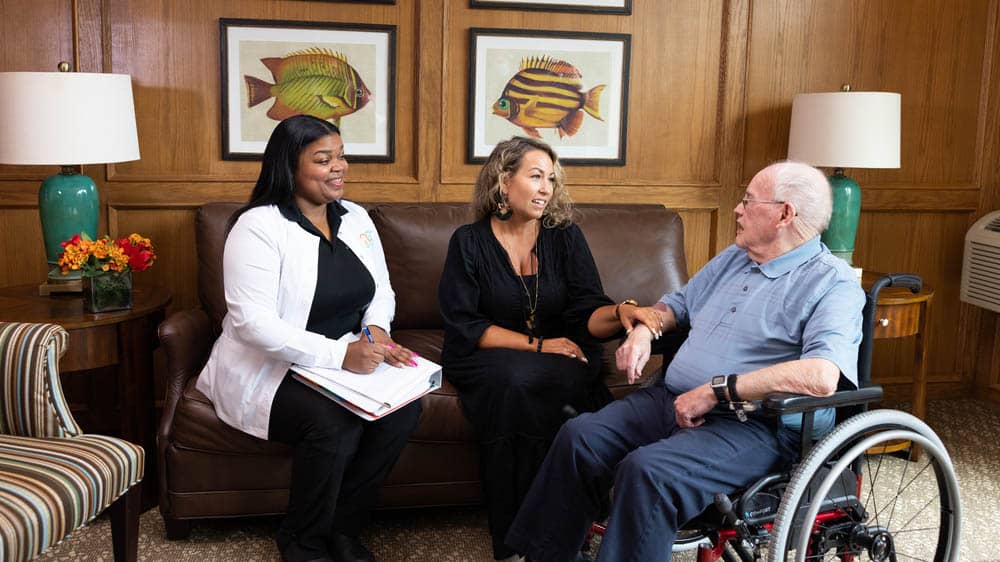

Five Tips for Succeeding in the Sandwich Generation
The sandwich generation doesn’t refer to a group of people born between a specific time period; rather, it’s a term that applies to anyone who is experiencing the struggle of caring for children and aging parents at the same time. These family caregivers are typically in their 30s and 40s and are doing their best to balance the duties they have as both parents and adult children. They are typically stretched to their limits in terms of emotional, financial and physical commitments, but are doing their best to hold everything together for their loved ones.
Does this sound familiar?
If you’re part of the sandwich generation, you’re probably also feeling a significant amount of stress and anxiety, especially given the circumstances of the pandemic. Juggling virtual schooling, career expectations, financial responsibilities, family dynamics and caregiving duties is no small feat, and it requires a good amount of flexibility on a daily basis. Although it’s hard, it doesn’t have to be as impossible as it may seem. Here are five tips to help you succeed in the sandwich generation.
Reprioritize Daily
Looking at the big picture can be too overwhelming sometimes. Learning how to shift your priorities on a daily basis can help make your tasks more manageable. On days when everything seems like a priority and you’re not sure where to focus your energy, experts suggest making a list and separating tasks into urgent and non-urgent categories to help you figure out what to address first.
Make Time for Self-Care
Not allotting enough time in the day to your own health and wellness can lead to caregiver burnout. While caring for others, it’s important to “recharge your batteries” by eating nutritious meals, sleeping seven to eight hours a night, and finding time to exercise. Add time for yourself to your calendar, just as you would any other important appointment or task you wouldn’t want to forget, to help you prioritize your own health needs.
Know Your Rights at Work
There are a variety of benefits that were established to provide family caregivers with some flexibility in the workplace. The Family Medical Leave Act (FMLA) is a federal program that is most widely applied to these instances. FMLA offers job security to caregivers who have to take a leave of absence for family medical reasons. FMLA is unfortunately an unpaid benefit; however, you maintain your access to your health insurance benefits for up to 12 weeks of time off.
Share Your Feelings
While it might seem like a good idea to keep things bottled up so as not to burden those around you, not talking about your feelings and challenges can actually do more harm than good. If you don’t want to talk to friends or family for fear they might not understand what you are going through, caregiver support groups are a great resource. Whether online or in person, you’ll be able to connect with others who are experiencing similar challenges, which, at the very least, might make you feel less alone during a challenging time.
Get Extra Help When You Need It
Although you are certainly capable of doing all the things for all your loved ones all the time, you shouldn’t have to push yourself to the limit while doing so. When you feel like you need a break or are starting to burn out, you can call in some extra help via respite care services. Right at Home offers respite care to help take some of the caregiving burden off you for a short period of time. It will provide you with the time and space you need to rest, relax and recharge.







